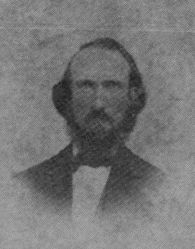Today U.S. Brig. Gen. Irvin McDowell leaves Washington with 35,000 troops, his departure marked by a cheering crowd. The size of McDowell’s army is the largest ever assembled in North America.
Northern civilians are anxious that the Union army engage Confederate forces. Heading west, McDowell’s goal is to push Confederate forces from Manassas Junction and gain control of the railroad to Richmond. The first major battle of the civil war is mere days away.
Meanwhile, in Georgia, Christian Index editor Samuel Boykin recognizes the religious irony of the war:
“Northerners are praying for victory, too; and they making precisely the same petitions and upon the same grounds that we do.”
Yet Boykin is certain that Southern Christians are the ones whose prayers are heard by God:
“The conclusion we reach is that the war is an unrighteous war on the part of our invaders – a war where brother is fighting against brother. Shame upon those who force it upon us.”
Contrary to conventional wisdom, the editor fears the war will be long and expensive. Yet he is certain “the right arm of the Almighty” will ensure the South’s victory. Nonetheless, he bewails the current materialism of the South, introducing a theme that later in the war will be pegged by many southerners as the reason for the South’s battlefield loses:
“We have made haste to grow rich, and have neglected our own social life, our literature, our domestic virtues, the charities of good neighborhood, the training of our children, and the altars of the living God.”
The problem with southern wealth, according to Boykin, is that it was being spent on Northern and European goods. Better to keep the region’s money at home. The war, he reasons, will make southerners use their material blessings more appropriately:
“Neither London, nor Paris, nor New York, will dictate our style of living. The money we have expended heretofore at Stewart’s, at Saratoga and Nahant, will be applied to founding charities, building up schools and constructing churches. We will be constrained to stay at home. – Enobled by education and national and personal independence, we will abide around our own hearthstones, sit beneath our ancestral forests, cultivate our paternal fields and worship the God of our Fathers. We will train our sons to manliness and our daughters to modesty. – Slave proprietorship will be subject to the law of kindness, and servitude itself become a condition of liberty regulated by law.”
Boykin’s vision of a glorious and harmonious white southern Christian kingdom constructed upon the backs of African slaves, not yet fully realized despite the best attempts of slaveholders, is a dream that will never become reality.
Source: Christian Index, July 17, 1861



